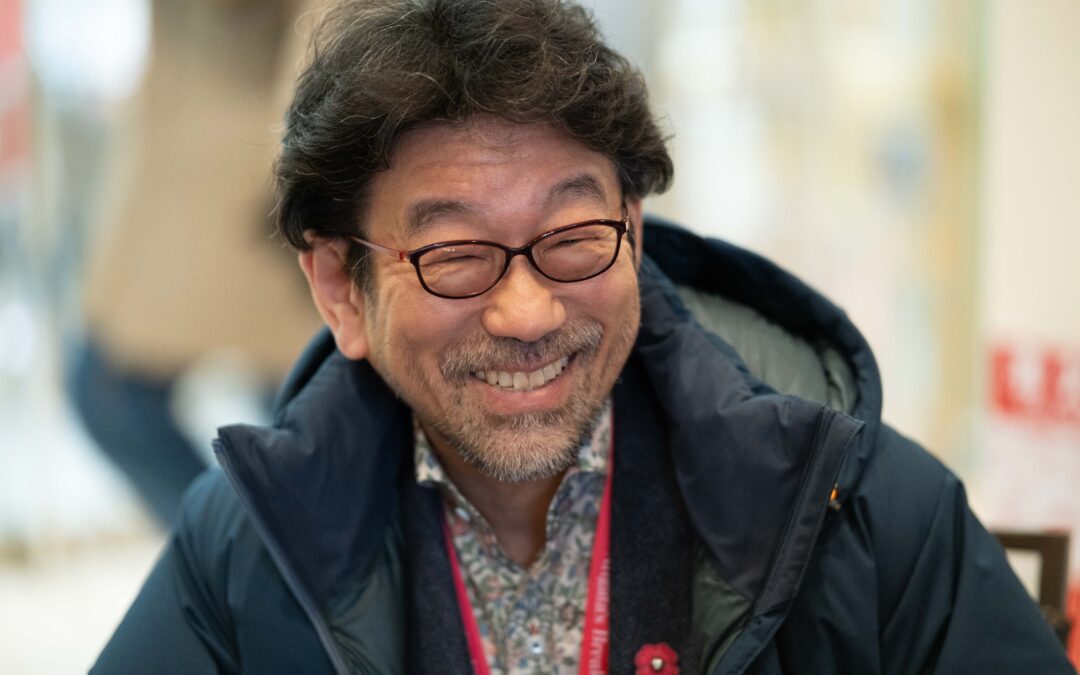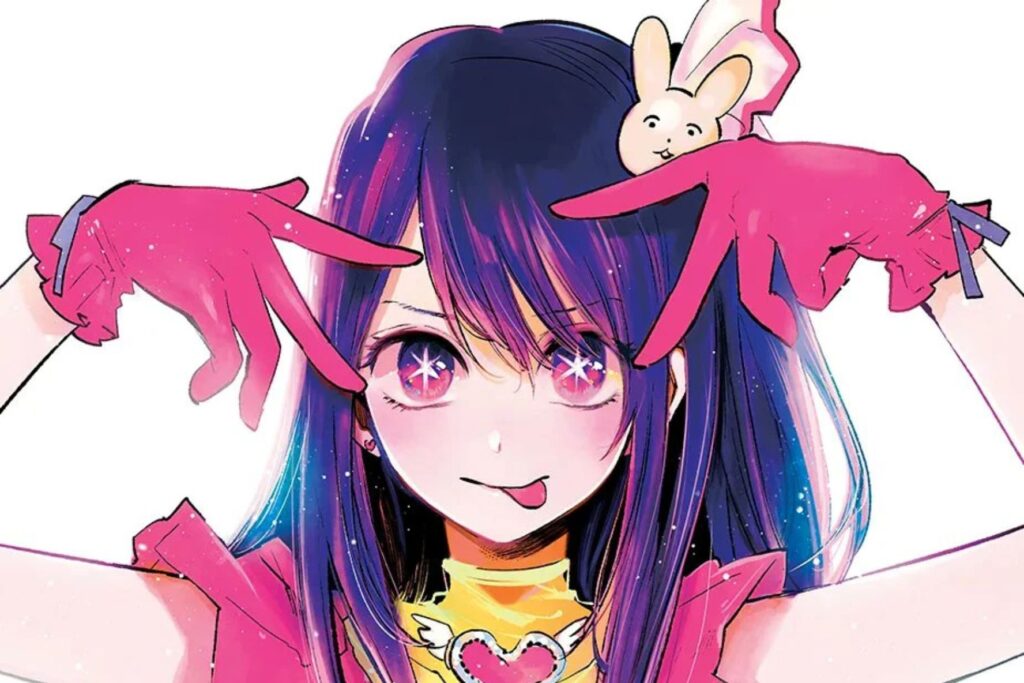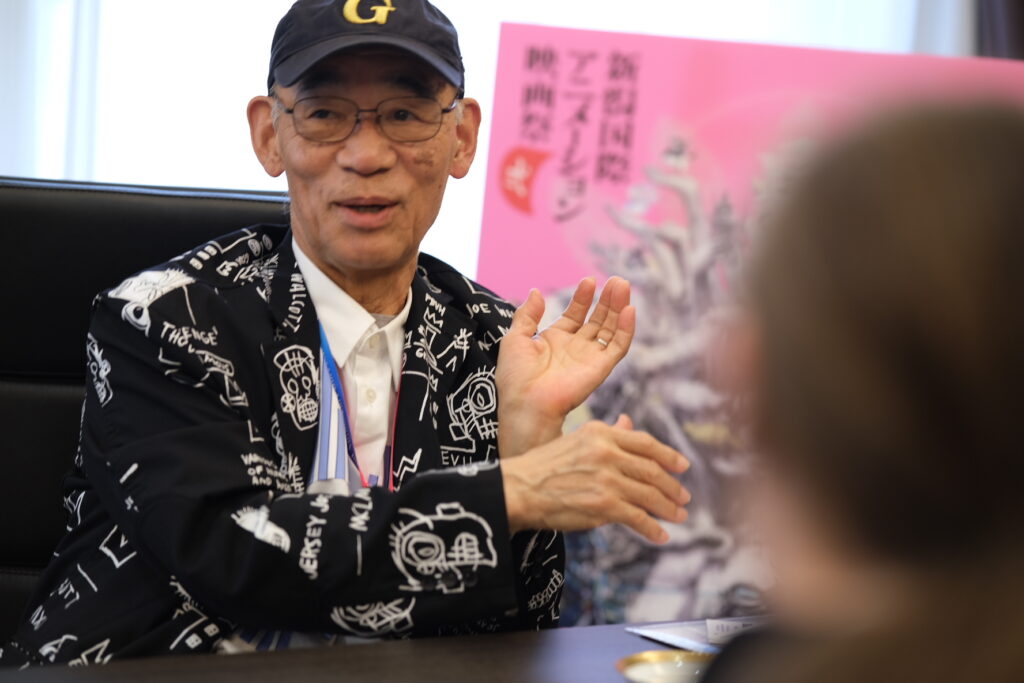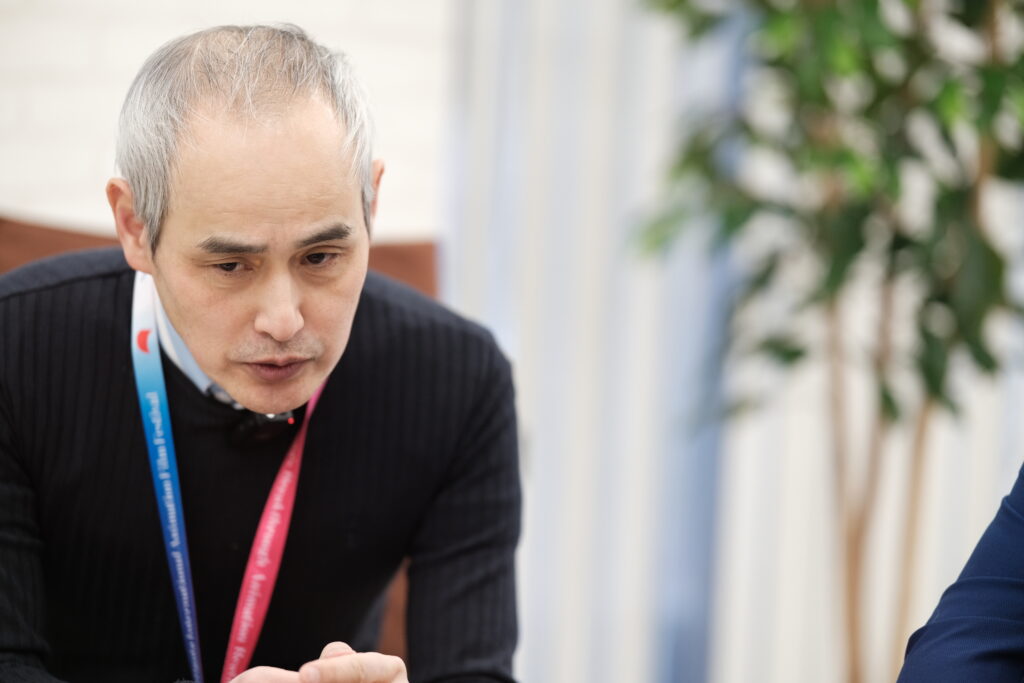As the representative director of planning company Genco, Tarô Maki has been a major figure in the Japanese animation industry for decades. This is due in no part to his role as a producer on some of anime’s greatest successes, notably in the theaters, with films such as Millenium Actress or In This Corner of the World.
Since last year, Maki and Genco have directed their efforts in another direction by becoming the main sponsor of the Niigata International Animation Film Festival, which is promising to become one of the major events dedicated to animation in Japan and Asia as a whole. During the last edition of the festival, we had the chance to sit down with Mr. Maki and hear his opinion about recent trends in the animation business and the Niigata festival.
This article would not have been possible without the help of our patrons!
If you like what you read, please support us on Ko-Fi! Get extra perks by subscribing to a monthly membership!
“The market has to change”
First, I’d like to ask you as a producer: how do you feel about the current state of Japanese animation, both artistically and industrially?
Tarô Maki: The first thing about the current Japanese animation industry is the overproduction – there’s too much stuff being made. Also, there aren’t enough animators.
The thing is there can be multiple reasons for an anime to be made. In some cases, it’s an artist wanting to create something; in some others, it’s a publisher wanting to sell a manga; and of course, in some cases, it’s the TV stations initiating a project. Depending on a producer’s position in regard to all of that, the things that can be produced are different. But when you add up all of this, the biggest problem really is that there’s too much stuff being made.
Has this changed a lot since you’ve begun your career as a producer?
Tarô Maki: It’s totally different.
How?
Tarô Maki: I began working as a producer during the transition from TV to video. It was the time when animation was starting to get produced only for so-called otaku. Now, the main distribution channel is streaming, right? Among the fans all around the world, there are some who want to see really artistic films, as well as people who just watch things while eating potato chips on their couch. It’s the same for live-action. I mean, I don’t think there are many people who watched Oppenheimer eating popcorn, but…
There might be. (laughs)
Tarô Maki: (laughs) But anyway, that’s why there are so many categories. That’s good in itself, but the result is overproduction.
But precisely, over the course of your career, you’ve supported auteurs, such as Sunao Katabuchi who’s here in Niigata right now, or Satoshi Kon. Has it become difficult to produce such movies nowadays?
Tarô Maki: It has. Worldwide, it’s become difficult to sell artistic films. The market has to change. So it’s not just producing new works, but also a new audience. In turn, it’s necessary to make new things for the audience. In France, you get public funding for this, but there’s nothing like this in Japan. It’s a huge difference. In Japanese animation, a lot of works tend to be very similar. Which can be good in its own way, but is very different from the French situation.
So that’s why, to change the market, you created the festival…
Tarô Maki: Exactly. Moreover, animation is a worldwide market, right? There aren’t a lot of viewers in Japan, but if you consider the number of people overseas, it’s good on a business level.
I guess you already answered a lot of the questions I had prepared. (laughs)
(laughs)
Talking of overseas, as the boss of Genco, you’ve produced lots of works, like Pluto, geared towards the overseas audience. But regarding the festival, do you plan on collaborating in a similar way with foreign companies?
Tarô Maki: It’s a thing we have to think about. As I just said, Japanese animation studios have reached the limits of their capacity. But working with Japan and working with overseas is totally different, isn’t it? The audience’s tastes are different too. However, I want to create contacts with Japanese studios that are interested in such opportunities. It might become an opportunity for both studios and creators to develop an interest in things different from what’s expected in the Japanese market. I believe that’s very important. I want to create collaborations between Japanese and foreign studios. Although I don’t know how to do so yet.
“Japanese animation producers and creators aren’t very good at pitching their work”
You have to create a place where such collaborations can emerge, don’t you? But that’s the thing – compared to other festivals such as Annecy or Cannes, there’s no market in Niigata. Even though when I talked to Mamoru Oshii, who was the jury chairman last year, he said things like, “It’s necessary to create a market”, or even “That’s what festivals are all about”.
Tarô Maki: That’s absolutely right. We plan on creating one! We will eventually, but it’s just the second time we have held this festival, isn’t it?
We have to, though. If we don’t, we won’t get people from overseas to come either. But what makes it difficult is that Japanese animation producers and creators aren’t very good at pitching their work.
I understand. I mean, even at the International Animation Market at Annecy, the MIFA, there aren’t a lot of Japanese. I feel like that has started to change, but…
Tarô Maki: There’s a reason for that. It’s this Japanese system called the production committee. It would be great if Niigata could work as an alternative, a place where Japanese creators could do business with foreigners and show them what they want to create. It’s also difficult to go to Annecy alone and pitch your project, isn’t it? Which is why it’s our mission as a festival to support such creators.
In Japan, other animation festivals such as the Hiroshima Festival or the New Chitose Airport Festival are geared towards independent works. Would you say that Niigata rather targets the industry?
Tarô Maki: What makes Niigata special is its focus on feature-length works, but also how it’s geared towards both production companies and creators. Rather than just business, it targets the artists. That’s why we have the Hiroshi Okawa and the Kôji Fukiya prizes. These are for production studios and individual artists.
Niigata claims to be an “international” festival, but the truth is that there are no interpreters during a lot of talks and that lots of screenings happen without subtitles, so it feels like you have trouble making things easier for the people coming from overseas.
Tarô Maki: It’s just the second time. That’s a lot of things to prepare, but we do put English subtitles on all the movies in the official competition. The festival’s still young, so we do also have money issues. That’s why attracting more visitors from all around the world and being able to add subtitles are related.
So is that just a money issue? Or a staffing issue? Or a lack of preparation?
Tarô Maki: All of that at once.
I see. But it’s true that, while I don’t know the details, it feels like the budget has increased, because the festival has certainly gotten bigger. That’s why I look forward to next year and the one after that, but… I’ve heard Genco is only financing the festival for 3 years, which would make the next one the last.
Tarô Maki: Where have you heard that? It’s wrong! (laughs)
Is that so? I feel better! Another thing is that, after looking around, it looks like the festival isn’t receiving any funding from Niigata City or any public support.
Tarô Maki: You’ve done your research well!
I mean, there’s nobody from the city in the pamphlet… Why don’t you get any support? Is it that they’re not interested?
Tarô Maki: You know, Japan is a country where public support of culture doesn’t exist. Which is our biggest problem. And on top of that, there’s no tradition of donations in Japan.
Getting into the business side of things, the animation business is extremely complex: there are the rights of the studios, the rights of the other production companies… There are two kinds of rights: one has to do with broadcasting – on TV or streaming – and the other with merchandising, which makes everything so difficult.
Production committees in particular are a complete mystery. I understand how they work in theory, but it’s very difficult to know what happens inside each committee.
Tarô Maki: It’s precisely because it’s so difficult to understand that it’s hard for the state or any entity who would provide support to actually do so. Even though it could be such a big opportunity. Because if you target the foreign market, you can get royalties from there to Japan. But I can’t tell what’s so hard to understand – the Japanese business model, or how to work with overseas.
For instance, The Boy and the Heron has been a big hit in the US, and part of that money has gone to Japan. But maybe the structure that makes it work is too complex. But we don’t have such a culture or tradition in Japan, even though it could be so profitable.
We’ve just talked about the city of Niigata, and there’s another event taking place at the same time as the festival. It’s the “Gatafes” and I’d like to hear your thoughts on the relationship between the two events.
Tarô Maki: The Gatafes has been going on for a long time, whereas it’s only our second year, so we’re not really working together.
Is that so? When I talked to Mr. Sûdo, he said that one of the reasons Niigata was chosen was not just the Gatafes but also the animation school where it takes place. This leads me to ask: why Niigata?
Tarô Maki: Well, one of the reasons is that our model was Annecy – and that Annecy is quite a small town. A city like Tokyo is too big, so we wouldn’t know where to do it, and it would be harder for people to find places to meet. So one of the reasons is that Niigata is small. But even then, there are hotels, theaters, places where we can hold screenings.
And if Annecy’s specialty is cheese, Niigata’s is sake, right?
Tarô Maki: Sake, but also rice and fish!
Could you explain what the Animation Camp taking place during the festival is about?
Tarô Maki: The Animation Camp is mostly about encounters. In daily life, there’s nearly no opportunity for aspiring artists and people already in the business. So it’s not about teaching how to make animation, but about getting people to meet – for the students coming here, being able to meet world-famous animation creators may be a life-changing experience.
Right. That’s what film festivals are all about, after all.
Tarô Maki: They’re about meetings and discoveries. It might change some people’s lives.
Which is also why you’re not just inviting veterans, but also younger people, like the staff from studio Flat this year. You’re trying to support everybody in the industry…
Tarô Maki: That’s just it.
In that regard, we just talked about Annecy, but there’s another festival I want to talk about. That’s the Tokyo Anime Awards Festival, which takes place just before Niigata. The person who created it, Kôji Takeuchi, has also been holding something called the Animation Bootcamp. Do you want to create something like it?
Tarô Maki: Maybe not the same thing, but perhaps something that resembles it, yes. But before that, I want foreign guests to come and create a place where various production companies can exchange. Basically, as long as you have people, you can make a bootcamp wherever. Whether it’s best to do it during the festival is a thing we need to consider.
I see. From your perspective, what has changed compared to last year?
Tarô Maki: Last year was the first time, so we had no point of reference. We couldn’t really tell what went poorly or what went well. But we got Mamoru Oshii and Katsuhiro Otomo to come, and I thought we had done something amazing… But we went even further this year.
Right. The amazing guests might become Niigata’s strongest point.
Tarô Maki: It’s only the second time, but it feels like it’s been going on for much longer. (laughs) We’re receiving such good reactions.
All our thanks go to Mr. Maki for his time and the Niigata festival staff for their cooperation.
Interview by Matteo Watzky & Ilyes Rahmani Martinez (Animeland)
Transcript by Antoine Jobard.
Translation by Matteo Watzky.
Like our content? Feel free to support us on Ko-Fi!
You might also be interested in
Oshi no Ko & (Mis)Communication – Short Interview with Aka Akasaka and Mengo Yokoyari
The Oshi no Ko manga, which recently ended its publication, was created through the association of two successful authors, Aka Akasaka, mangaka of the hit love comedy Kaguya-sama: Love Is War, and Mengo Yokoyari, creator of Scum's Wish. During their visit at the...
Ideon is the Ego’s death – Yoshiyuki Tomino Interview [Niigata International Animation Film Festival 2024]
Yoshiyuki Tomino is, without any doubt, one of the most famous and important directors in anime history. Not just one of the creators of Gundam, he is an incredibly prolific creator whose work impacted both robot anime and science-fiction in general. It was during...
“The Niigata festival aims to include everything, from art to entertainment” – Tadashi Sûdo Interview
During our time at the second edition of the Niigata International Animation Film Festival, we had many encounters and reunions. Among those was Mr. Tadashi Sûdo, whom we were used to seeing at the Annecy Animation Festival. While maybe not well-known to the...





Recent Comments